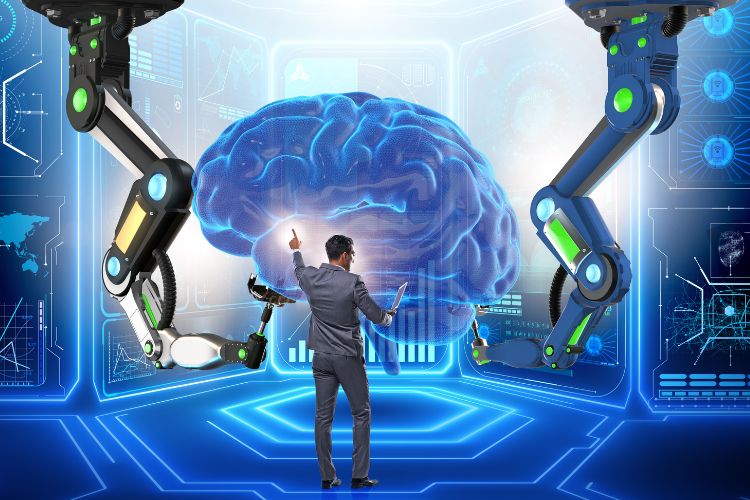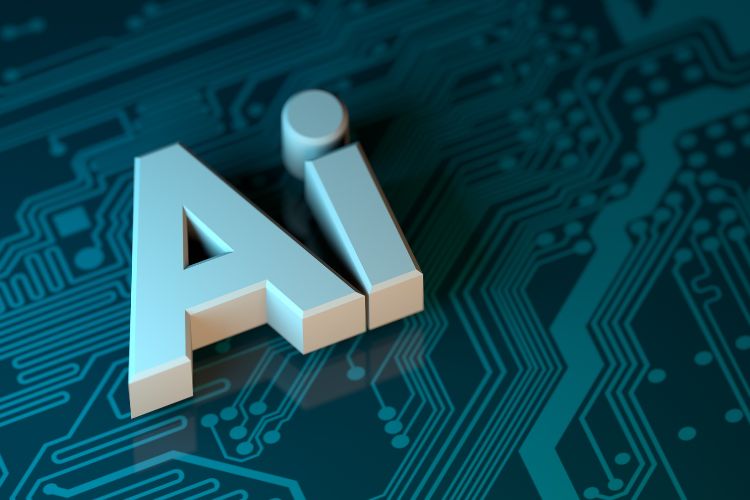Artificial Intelligence (AI) is transforming the way we interact with technology, making our devices smarter and more intuitive. At the heart of many AI systems lies a critical component known as a “Knowledge Base.”
What Is Knowledge Base in Artificial Intelligence? A knowledge base in artificial intelligence (AI) is a structured repository of information and data that an AI system uses to make decisions, solve problems, or respond to queries.
Contents
- Key Aspects of a Knowledge Base in Artificial Intelligence:
- Key Takeaways
- What Is Knowledge Base in Artificial Intelligence: Understanding Knowledge Base in AI
- Significance of Knowledge Base in AI
- How Knowledge Bases Work
- Applications of Knowledge Bases in AI
- Challenges and Future Developments
- In Conclusion
Key Aspects of a Knowledge Base in Artificial Intelligence:
| Aspect | Description |
|---|---|
| Definition | A structured repository of information, facts, and data in AI. |
| Purpose | Used by AI systems to make decisions, solve problems, or answer queries. |
| Contents | Contains a wide range of knowledge, including facts, rules, and relationships. |
| Representation | Data is organized in a structured format, often using databases or graphs. |
| Access and Reasoning | AI systems can access and process information from the knowledge base. |
| Applications | Used in various AI applications like natural language processing, expert systems, and decision support systems. |
| Updating | Knowledge bases can be updated and expanded over time to enhance AI performance. |
| Examples | 1. Wikipedia serves as a knowledge base for many natural language processing tasks. |
| 2. Expert systems in healthcare use knowledge bases to diagnose illnesses. | |
| 3. Decision support systems rely on knowledge bases for making informed decisions. |
Knowledge bases are a fundamental component of AI systems, enabling them to leverage information to perform tasks and provide intelligent responses across a wide range of domains.
Key Takeaways
- Structured Data Repository: A knowledge base in AI is a structured repository that stores information, facts, rules, and relationships in an organized manner.
- Decision and Problem Solving: It is used by AI systems to make decisions, solve problems, or respond to queries by accessing and reasoning with the stored knowledge.
- Diverse Applications: Knowledge bases find applications in various AI fields, including natural language processing, expert systems, and decision support systems.
- Dynamic and Updatable: Knowledge bases can be updated and expanded over time to incorporate new information and improve AI performance.
- Essential Component: Knowledge bases are a foundational element in AI, enabling machines to utilize and apply knowledge for intelligent decision-making and problem-solving.

What Is Knowledge Base in Artificial Intelligence: Understanding Knowledge Base in AI
In the realm of Artificial Intelligence, a Knowledge Base is a centralized repository of structured information that a computer program or AI system can use to perform various tasks, make decisions, or provide intelligent responses.
This repository contains a wealth of data, facts, rules, and relationships organized in a way that allows AI systems to access and utilize this information effectively.
Components of a Knowledge Base AI
A Knowledge Base typically comprises several key components:
- Data: Raw facts and information, often organized in a structured format for easy retrieval and manipulation.
- Rules: A set of rules or guidelines that govern how the information in the Knowledge Base is processed and used by the AI system.
- Inferences: Algorithms and logic that enable the AI system to draw conclusions and make deductions based on the information and rules in the Knowledge Base.
- Ontology: A formal representation of knowledge that defines the relationships between different concepts and entities within the Knowledge Base.

Significance of Knowledge Base in AI
The Knowledge Base plays a pivotal role in AI systems by providing them with the knowledge and reasoning abilities necessary to perform tasks that mimic human intelligence. Here are some key reasons why Knowledge Bases are essential in AI:
1. Decision Making
AI systems often need to make decisions based on available information. A Knowledge Base equips them with the data and rules required to make informed choices, whether in healthcare diagnosis, autonomous vehicles, or customer service chatbots.
2. Problem Solving
In problem-solving tasks, AI systems can access their Knowledge Base to identify patterns, analyze data, and generate solutions. For instance, in manufacturing, AI can use its Knowledge Base to optimize production processes.

3. Natural Language Understanding
For AI systems to understand and respond to human language effectively, they need access to a vast repository of language-related knowledge. A Knowledge Base helps AI systems interpret language, answer questions, and engage in meaningful conversations.
4. Adaptability
AI systems can learn and adapt from their experiences. A Knowledge Base enables them to store and recall previous interactions, improving their performance over time through machine learning techniques.
How Knowledge Bases Work
Knowledge Bases in AI operate on the principles of knowledge representation, reasoning, and inference. Here’s a simplified overview of how they work:
1. Knowledge Representation
Information is structured and organized within the Knowledge Base to make it accessible to AI systems. This often involves defining entities, attributes, and relationships between different pieces of knowledge.
2. Reasoning
AI systems use logical reasoning to draw conclusions from the data and rules in the Knowledge Base. This involves applying deductive, inductive, or abductive reasoning methods to solve problems or answer questions.
3. Inference
Inference engines within AI systems process the data in the Knowledge Base, apply the defined rules, and generate new information or responses. This process allows AI to make decisions and provide intelligent outputs.
Applications of Knowledge Bases in AI
The versatility of Knowledge Bases has led to their adoption in various fields and applications of Artificial Intelligence. Here are some notable examples:
1. Healthcare
In medical diagnosis and treatment recommendation systems, Knowledge Bases store vast amounts of medical knowledge, patient data, and treatment guidelines.
AI systems can access this information to assist doctors in making accurate diagnoses and treatment decisions.
2. Customer Service
Chatbots and virtual assistants in customer service rely on Knowledge Bases to understand customer inquiries and provide relevant responses.
These systems continuously update their knowledge to improve their ability to assist customers effectively.
3. Autonomous Vehicles
Self-driving cars use Knowledge Bases to store maps, traffic rules, and vehicle-specific data. This information helps autonomous vehicles navigate safely and make real-time decisions on the road.
4. Financial Analysis
In the world of finance, AI-driven trading algorithms use Knowledge Bases to process historical market data, news, and economic indicators. This knowledge enables them to make data-driven investment decisions.
5. Natural Language Processing (NLP)
NLP models, like the ones used in language translation or sentiment analysis, rely on Knowledge Bases to understand the context and nuances of human language, improving the accuracy of their translations or sentiment predictions.
Challenges and Future Developments
While Knowledge Bases have greatly enhanced AI capabilities, they are not without challenges. Some of the key challenges and future developments in this field include:
1. Scalability
As AI systems become more complex and the volume of available information grows, Knowledge Bases need to scale accordingly. Researchers are working on developing scalable architectures to handle the vast amounts of data required for advanced AI applications.
2. Knowledge Acquisition
Updating and maintaining Knowledge Bases can be labor-intensive. Automating the process of knowledge acquisition, including extracting information from unstructured data sources, is a current focus of research.
3. Contextual Understanding
Improving AI systems’ ability to understand and adapt to different contexts is a critical research area. This involves enhancing their knowledge of cultural, social, and situational nuances.
4. Ethical Considerations
The use of Knowledge Bases in AI also raises ethical concerns, such as biases in data and decision-making. Efforts are being made to ensure that Knowledge Bases and AI systems are fair and unbiased.
In Conclusion
In the world of Artificial Intelligence, Knowledge Bases serve as the backbone that empowers AI systems with the ability to reason, learn, and make informed decisions.
These repositories of knowledge are integral to the development and application of AI across various industries and domains.
As technology continues to advance, so too will the capabilities of Knowledge Bases, propelling AI further into the realms of human-like intelligence and problem-solving.
The future of AI is closely intertwined with the evolution of Knowledge Bases, making them a critical area of research and innovation.






